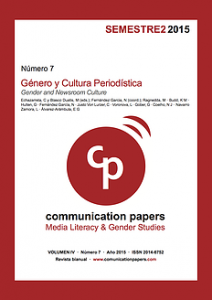[Artículo] Political parallelism and the case of women in management positions in public media in Poland. An ethnographic study.
 Autora: Greta Gober
Autora: Greta Gober
In this research, I analyze the collective and historical processes, which create the necessary conditions for the practice of gender discrimination to persist in one of the biggest public media intuitions in Poland, namely in the Polish Television (TVP). Through extensive ethnographic research and in-depth interviews, I documented how an oppressive organizational structure, first created during communism and today maintained through political parallelism (Dobek Ostrowska, 2011), became part of TVP’s organizational culture. This culture has significant consequences for women’s career prospects, as top power positions in public media in Poland remain associated with politics and masculinity. Herein, I first examine the oppressive organizational structure of TVP, as experienced by its employees; and next I argue that the resulting organizational culture, imposes unequal work demands on women in the organization and leads, even the female senior managers in TVP, to engage in defending the status quo by resisting women who violate the existing gender order by reaching for the “forbidden” top positions in the organization (Rudman, et. all. 2012).
